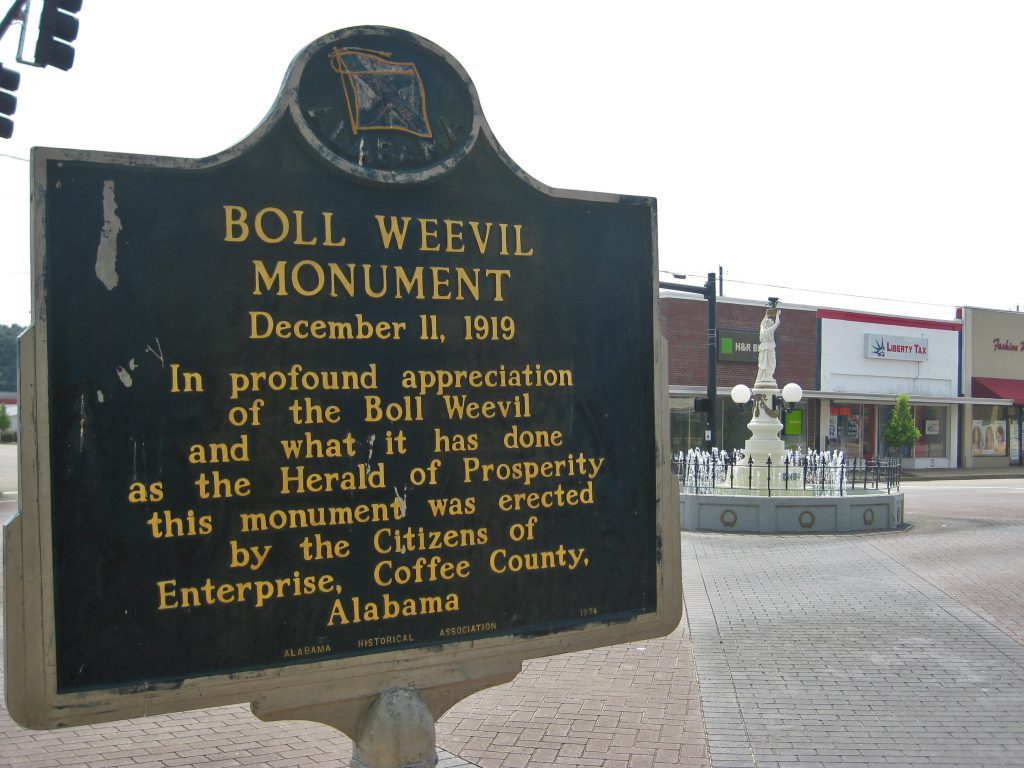
In Alabama in the U.S., a monument reads, “In profound appreciation of the Boll Weevil and what it has done as the herald of prosperity.” Although this insect was perceived as an instrument of devastation, it would surprisingly become a blessing in disguise.
The boll weevil, indigenous to Mexico, arrived in the southeastern region of the U.S. around 1910. Within a short time, the beetle was ravaging the staple crop of Alabama; the majority of cotton production was destroyed. Farmers faced bankruptcy. Local economies seemed doomed for collapse. These were dark days of disorientation and despair. Yet after phases of denial, citizens united to transform the region’s agriculture. Crops were diversified. The region soon exceeded every other county in the nation in the production and harvesting of peanuts [1], [2].
When we read about such positive outcomes, we can fail to recognize the formidable gap between the initial disruption, and eventual transformation. Transition phases are often arduous and chaotic. With rapidly changing social structures, people, processes, procedures, and places are often undergoing intense adjustments. Consequently, effective solutions often elude us [3].
Our community recognizes that society is grappling with discomforting transitions; technology colliding with governance, policy, and democracy, even as it can likewise complement. Technology has brought new complexities in the relationship between media and democracy. Technology outpaces us; our traditional pace of governance seems sluggish and negligent. We must transition to a more appropriate pace to avoid undermining democracy.
Our writers in this Special Issue provided brilliant reflections, as well as practical methodologies for society to consider; we help address the gap between the current state and the future state. Robust analysis did not elude these writers.
With a nod of respect for history, we would do well to travel from the monument in Alabama to another monument of significance in Geneva: The Reformation Wall. We learn that the Reformation burst out of (what some call) the Dark Ages. The Reformation is often credited with planting many of the seeds of modern democracy. Thus, under our contemporary dark clouds of disquieting transition, I proclaim the inscription on the wall, in hope for modern democracy: Post tenebras, Lux.
Author Information
Christine Perakslis is Associate Professor in the MBA Program, College of Management, Johnson & Wales University, Providence, RI. Email: christine.perakslis@jwu.edu.






 JOIN SSIT
JOIN SSIT